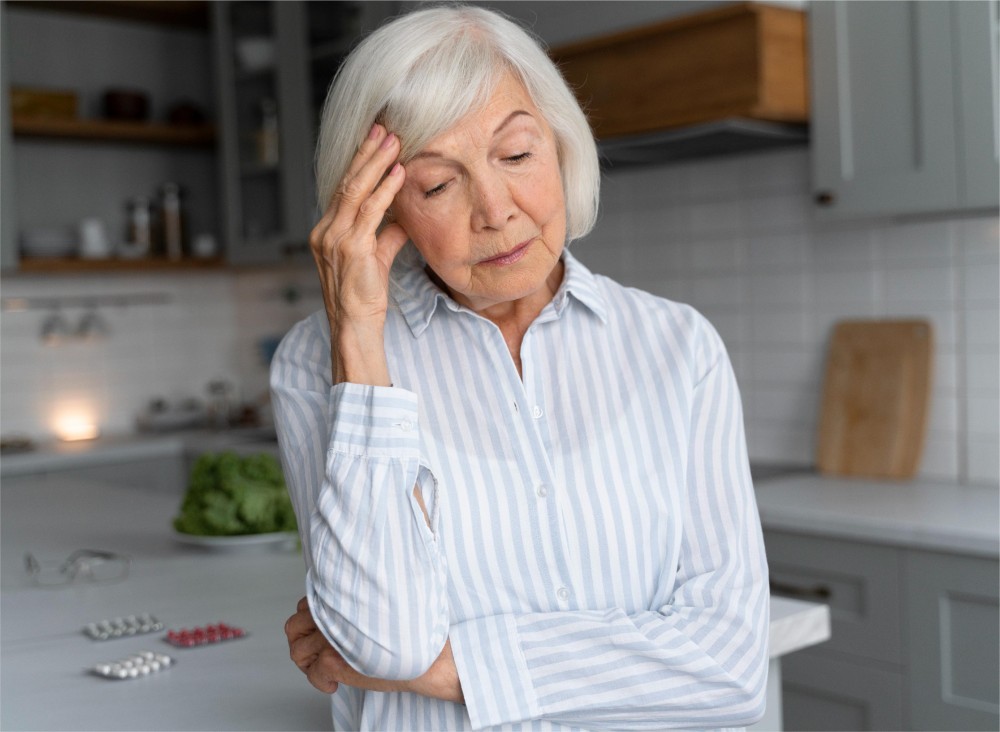-
SALES
- Popular BrandsCetaphilColgateDettolDoveEgo QVGuardianGilletteKloranceKotexKundalMore ...

- Health Supplement
- Popular BrandsCetaphilColgateDettolDoveEgo QVGuardianGilletteKloranceKotexKundalMore ...
Healthy Food ProductsNew- Popular BrandsCetaphilColgateDettolDoveEgo QVGuardianGilletteKloranceKotexKundalMore ...
- Mom & Baby
- Kids
- Personal Care
- Popular BrandsCetaphilColgateDettolDoveEgo QVGuardianGilletteKloranceKotexKundalMore ...
- Skincare
-
Popular BrandsCetaphilColgateDettolDoveEgo QVGuardianGilletteKloranceKotexKundalMore ...
- First Aid
- OTC Medicine
- Popular BrandsCetaphilColgateDettolDoveEgo QVGuardianGilletteKloranceKotexKundalMore ...
- Rehab
- Popular BrandsCetaphilColgateDettolDoveEgo QVGuardianGilletteKloranceKotexKundalMore ...
- All Products
Common Elderly Health Issues

As our parents age, the dynamic of care begins to shift. We move from being cared for, to being caregivers, emotionally, practically, and sometimes medically. But often, some of the most important health issues affecting our elderly loved ones go unspoken. Not because they don’t matter, but because they’re embarrassing, hard to explain, or quietly tolerated.
Today, let’s learn the hidden health challenges older adults commonly face, why they’re often overlooked, and how we, as children, caregivers, or family members, can offer support that preserves both dignity and quality of life.
- Urinary Incontinence
Many elderly people, especially women after childbirth or men with prostate issues, experience urine leakage. Yet, due to shame or fear of “being a burden,” they suffer in silence. Untreated, it can lead to skin infections, UTIs, and a sharp drop in self-esteem.
Signs to watch: increased laundry, reluctance to leave the house, or noticeable odors.
Pharmacy Aid:
Adult Diapers & Absorbent Underwear - Look for breathable, slim-fit products with odor control.
Brands: Tena, Esential, Absorba, Certainty
- Chronic Constipation
Long-term constipation can cause discomfort, reduce appetite, and worsen bladder control. Contributing factors include low fiber intake, dehydration, inactivity, and medications like iron or calcium supplements.
Signs to watch: straining, bloating, or skipping toilet routines.
Pharmacy Aid:
Laxatives & Fiber Supplements - Lactulose, Psyllium husk, or Alfa PH
Ask your pharmacist which is best for long-term or gentle relief.
- Hearing Loss
It doesn’t always show up as “I can’t hear.” Instead, it may appear as withdrawal from conversations, confusion in noisy environments, or an unusually high TV volume. Left unaddressed, it can lead to loneliness and cognitive decline.
Signs to watch: repeating questions, mishearing words, or becoming quiet in group settings.
Pharmacy Aid:
Sound Amplifiers & Hearing Assistive Devices (Hearing aids)
While proper hearing aids require audiologist fitting, many pharmacies carry entry-level amplifiers, TV hearing sets, and amplified phones that improve daily function.
- Balance Issues & Fall Risk
Falls are one of the leading causes of injury and hospitalization in older adults. But what many don’t realise is that it’s not just about weak bones, it’s often due to muscle loss, also known as sarcopenia.
As we age, muscle mass naturally declines, especially after age 60. This leads to:
- Slower walking speed
- Reduced leg strength
- Poor posture and balance
- Greater risk of falling
Signs to watch: unsteady walking, needing support when standing, reduced confidence in movement, or shrinking appetite (which affects muscle repair).
Pharmacy Aid:
Protein Supplements for Seniors - Whey protein, plant based protein or complete nutritional drinks that helps to regain strength
**Look for options labelled high-protein or muscle-support
Choose low-sugar formulas for elderly with diabetes or metabolic issues
Mobility & Safety Aids
Grab bars, anti-slip mats, and raised toilet seats
Walking sticks, quad canes, or foldable walkers (Choose rubber-tipped, height-adjustable options.)
All of these improve balance and reduce fall risk, especially when paired with strength-maintaining nutrition.
- Vision Problems
Conditions like cataracts or macular degeneration affect mobility, reading, and even medication adherence. Many elders won’t complain until it affects their independence.
Signs to watch: squinting, minor home accidents, or missed steps.
Pharmacy Aid:
Vision Support Tools
LED magnifiers for reading
Large-print pill boxes, talking watches, and big-button phones
These make daily life easier without making them feel “old.”
- Mental Health & Loneliness
Mental health changes are easy to overlook. Many older adults suffer in silence, especially if they’ve lost a spouse or feel left behind socially. Depression may show up as sleep changes, complaints, or irritability, not just sadness.
Signs to watch: loss of interest in activities, oversleeping, or constant complaints.
Pharmacy Aid:
Mood and Cognitive Supplements (Magnesium, Ginkgo biloba, B-complex vitamins etc.)
Natural teas (like chamomile/lavender) for sleep and calm
**Always confirm with a pharmacist if safe alongside other medications.
How You Can Support (Without Taking Over)
Caring for an aging parent doesn’t mean controlling them, it means supporting them with empathy and respect. Here’s how:
Ask, don’t assume. (“Would you like help with this?” vs. “You can’t do this.”)
Involve them in care decisions.
Normalize the conversation — “This is more common than we think.”
Our elderly parents won’t always tell us what’s wrong. Sometimes it’s pride. Sometimes it’s fear. And sometimes they just don’t want to trouble us. But by being observant, gentle, and informed, we can catch early signs, and help them age with dignity, safety, and love.
Because the best care isn’t just physical. It’s emotional. It’s respectful. And it begins with listening.
**All the aids mentioned are available at HTM Pharmacy and online platforms like Shopee, Lazada.
Let's keep in touch
Subscribe for our latest news and be the first to know about our offers.


![BIOFIZZ Magnesium Bisglycinate (30's x 2) [Magnesium Glycinate/Magnesium Supplement/镁] BIOFIZZ Magnesium Bisglycinate (30's x 2) [Magnesium Glycinate/Magnesium Supplement/镁]](site_media/img/12942-00139465_L_1.jpg)


![BIOFIZZ Flexigard Capsule (60's) [Knee Support Supplement/Joint Pain Supplements/Strong Joint Supplement/Sakit Lutut] BIOFIZZ Flexigard Capsule (60's) [Knee Support Supplement/Joint Pain Supplements/Strong Joint Supplement/Sakit Lutut]](site_media/img/12845-00139403_L_1.jpg)


